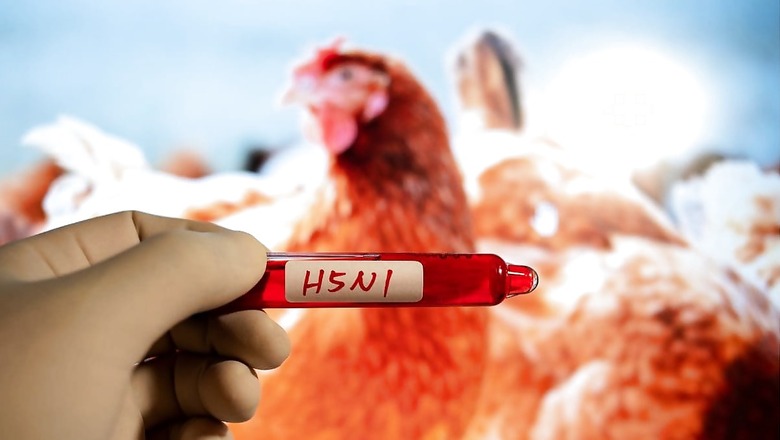Bird Flu Scare: Govt Checks Virus Strains Circulating in India, Poultry Lobby Finds No Unusual Trend

views
India has begun monitoring virus strains amid the looming scare of bird flu globally, especially in the United States.
Last week, the Union government conducted an assessment of the prevailing flu strains in the country. Poultry firms, too, have been closely monitoring the situation.
Experts worldwide have raised a warning about the potential of a bird flu pandemic, which could be a hundred times more severe than Covid-19. The emergence of H5N1, also known as avian influenza, among dairy cows in the US, with a confirmed case of a human testing positive for the virus in Texas, has sparked considerable alarm.
“Last week, the government assessed the prevailing influenza viruses in India. We did not identify any concerning levels of avian influenza. H1N1, known to cause swine flu, was detected, but there was nothing unusual noted,” a top government official told News18.
Similarly, poultry firms across India have increased vigil and poultry. Avian influenza is a disease which results from infection of birds with influenza viruses. These viruses typically circulate among wild aquatic birds globally and have the potential to infect domestic poultry and other avian and animal species. While bird flu viruses typically do not infect humans, isolated cases of human infections have been reported across the globe.
According to Ranpal Dhanda, president of the Poultry Federation of India (PFI) — a lobby of over 2,500 members including farmers, veterinarians, breeders, processors, and other allied fields related to the poultry — no unusual trend has been spotted by the industry, so far.
Dhanda told News18 that “news of bird flu could have been more concerning if it had surged about two months ago”.
He noted that during winter, migratory birds arrive from various parts of the globe, potentially bringing such viruses with them. “However, at present, it is the time when these birds leave India, reducing the likelihood of acquiring new infections.”
Dhanda, who is also the president of Unnat Group engaged in the poultry feed and equipment business, stated that the association has instructed its members to remain vigilant and report any unusual activity. “Nothing unusual has been observed so far,” he added.
‘Prepare as if next pandemic will happen now’
According to Dr Anurag Agrawal, Dean, BioSciences and Health Research, Ashoka University, the strategy of surveillance has to be similar to what we follow in case of influenza viruses.
“We only need to follow the data and maintain strict vigil and respiratory infection surveillance.”
Agrawal, the former director of the Institute of Genomics and Integrative Biology (IGIB), advised that “India needs to follow the one health approach”.
The One Health approach is a collaborative method that recognises the interconnectedness of human health, animal health, and environmental health to address health challenges effectively.
Similarly, Dr Vishal Rao, a member of Karnataka’s genomic surveillance committee, also called for adopting a “one health approach”.
Rao, who is also the dean for the Centre of Academic Research at Bengaluru-based HCG Cancer Hospital, advised that all Indian states and central government should be prepared to fight the pandemic even if the news around H5N1 fizzles out in a week.
“We understand that avian influenza is a highly pathogenic virus, but it does not typically spread from human to human. Nonetheless, we should prepare ourselves as if it has the potential to cause the next pandemic. What is the point of learning from the second wave of Covid-19 if we do not begin preparing well in advance?”














Comments
0 comment